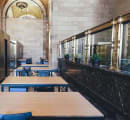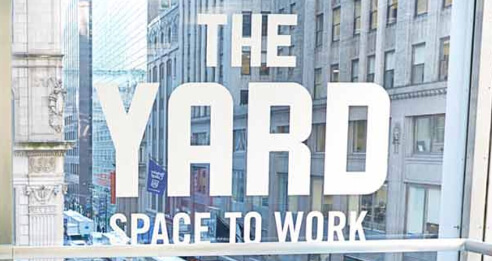
Largest Coworking Companies


Coworking has transformed the conventional approach to work. People are not bound to the traditional office setting; they instead opt to work in spacious and bright coworking spaces that offer them various options. For instance, some provide integration events, floating desks, free drinks, and dedicated offices.
Since different kinds of people will come through the office sharing the same equipment, security issues are bound to arise. This article enlists some of the safety and security issues that often occur in a coworking space.
The physical security of the premises should always be guaranteed. It includes having regulated and well-lit entrances and, preferably, having security guards at the main gates and exits. Installation of an alarm system and video surveillance are other security measures to take into consideration to guard your premises. You can also employ mobile access control to enable members to get into the premises using credentials installed on their smartphones, which is much easier than copying and issuing traditional keys that are easily stolen.
The walls of the office should also be soundproof to provide privacy for your members. What goes on in the shared space should not be heard by people in the neighboring office or room.
It is good to install video surveillance in the coworking space. This is because people in the office have different characters where others could display misconduct. When you have video surveillance, it will discourage mischievous behavior among members and guarantee safety for other employees. First aid kits are also another safety measure necessary to have in a coworking space.
Coworking spaces provide internet services for members; it is, therefore, the duty of the office manager to ensure that security measures are put in place to prevent data breaches. The breaches can come from within or outside the premises. Outside attacks occur through the internet, such as malware attacks and from within, a malicious individual can physically introduce viruses into other people’s computers or through the office WiFi. Members should have unique passwords and credentials to use in accessing the WiFi network.
It is good to have the people entering the office to be issued with visitor badges when they check-in. Having a visitor badge is proof that you have fully checked in and anyone in the office without one should explain how they got inside the workplace. This policy rids the office of idlers and busybodies who distract operations.
In relation to this, a visitor’s log is also important to keep track of non-members who meet members for personal reasons like deliveries or business meetings. The log will be useful when you need to make an emergency evacuation as you will know the exact number of people in the office at the time. The log can also be useful when a security issue arises and a legal case is imminent. Visitor management software can be useful for this purpose. Instead of recording on paper; this also shows you are tech-savvy when your visitors sign on a tablet instead of on a piece of paper or a book.
In most coworking spaces, members come with only their laptops and the owner supplies other amenities such as internet, furniture, and drinks. The desks and chairs should be comfortable to the members as some of them will spend many hours there working on major projects and tasks.
Therefore, there should be a wide range of furniture to enable movement and change of posture frequently. The arrangement of the furniture should also be in a way that does not interfere with the natural flow of movement throughout the space. Scanners and printers should also not be placed on the desk to avoid distractions.
Your coworking space should also be accessible to differently-abled people (for those in wheelchairs or those who have other mobility requirements. When planning the space, you can enlist the services of a professional to help you design the space in a way that it will be accessible to a disabled person.
A good number of coworking spaces provide benefits and facilities such as onsite showers, coffee machines, yoga classes and more to appeal to their members. If let’s say you have an onsite shower, you should make sure that there is constant supply of water and that the shower cubicles are spotless at all times. The coffee machine should also not run out of coffee or clean cups.
In conclusion, coworking is a concept that is bound to grow as freelancers, remote workers and large companies alike adjust their office arrangements. With these adjustments it's important for office and community managers to keep the safety and comfort of everyone in mind, even when working arrangements may seem more casual and flexible.
Save your community manager 41 hours each week—learn how The Yard did it with cloud-based access control.
Read the Case StudyFree access to our best guides, industry insights and more.
